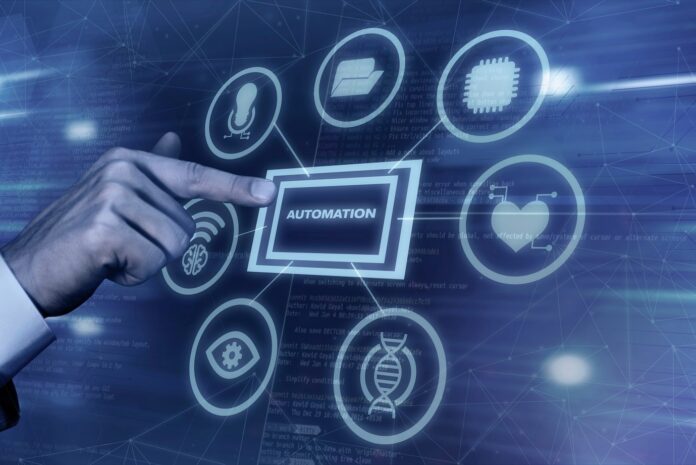In an era where efficiency is king, businesses are on a relentless quest for the holy grail of productivity. Enter AI-driven workflow automation, a revolutionary force that reshapes the landscape of operational processes. Imagine a world where mundane tasks are seamlessly handled by intelligent systems, freeing up valuable human talent for creative problem-solving and strategic thinking. This technological advancement is not merely a trend; its a profound transformation that empowers companies to streamline efforts, enhance accuracy, and ultimately accelerate growth. As we delve into the three game-changing facets of AI-driven workflow automation, well uncover how this innovation is not just optimizing workflows but redefining success in the contemporary business environment. Get ready to explore how the confluence of AI and automation holds the potential to elevate enterprises to unprecedented heights.
Enhanced Efficiency and Productivity

AI-driven workflow automation serves as a catalyst for enhanced efficiency and productivity within organizations, reshaping the way teams operate. Imagine a scenario where menial tasks, like data entry and scheduling, are carried out seamlessly in the background by intelligent algorithms—freeing up your talented workforce to focus on strategic initiatives that drive growth. The transition is not merely about speed; its about precision, as AI systems minimize human error, ensuring that information flows smoothly between departments. With real-time insights generated through data analysis, businesses can make informed decisions faster than ever, adapting to market changes with remarkable agility. This synergy of automation and human creativity cultivates a dynamic work environment where innovation thrives, leading to significant performance boosts that were previously unattainable.
Cost Reduction and Resource Optimization

AI-driven workflow automation stands at the forefront of a transformative shift in how businesses approach cost reduction and resource optimization. By leveraging sophisticated algorithms and machine learning, companies can identify inefficiencies in their processes that might go unnoticed in traditional frameworks. This means not only slashing operational costs but also reallocating valuable human resources to high-impact tasks that drive innovation. Imagine a scenario where tedious data entry — once a drain on time and talent — is automated, freeing employees to focus on strategic initiatives. Moreover, AI can predict demand fluctuations, enabling dynamic inventory management that minimizes waste while maximizing availability. As organizations embrace these technological advancements, they unravel a new dimension of agility, turning potential pitfalls into streamlined pathways to success. It’s a game-changing evolution, where once-stagnant workflows morph into rhythmic cadences of productivity and creativity.
Improved Data Accuracy and Decision Making

In the digital age, where data reigns supreme, the infusion of AI-driven workflow automation has revolutionized the landscape of business decision-making. Imagine a scenario where manual data entry and analysis, often fraught with human error, are swiftly replaced by intelligent algorithms that not only process vast amounts of information but also enhance its accuracy. This seamless integration enables stakeholders to make informed decisions based on real-time insights rather than outdated or flawed data. Furthermore, as AI systems learn and evolve, they generate predictive analytics, uncovering hidden patterns and trends that might otherwise go unnoticed. This not only streamlines operations but ultimately empowers businesses to respond proactively to changing market dynamics, fostering a culture of agility and innovation. In a world where every second counts, the precision and clarity brought forth by AI are not just improvements—they’re essential game-changers.
Conclusion
In conclusion, AI-driven workflow automation is undoubtedly a game-changer for businesses seeking greater efficiency, scalability, and innovation in today’s fast-paced market. By streamlining processes and minimizing human error, companies can focus on strategic initiatives that drive growth and enhance customer experience. The integration of autonomous AI agents further amplifies these benefits by enabling organizations to manage tasks with minimal human intervention, thus freeing up valuable resources while enhancing operational agility. As businesses continue to embrace these transformative technologies, they position themselves not only for immediate gains but also for sustained competitive advantage in an ever-evolving landscape.



